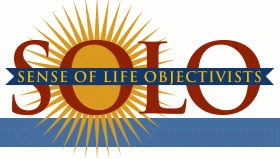A Culture of Fear
Much to the annoyance of the many conservative bloggers on the Kiwi blogosphere, most libertarian commentators on the internet on this side of the ditch have been out in full force protesting the Drug War. Of course, it makes sense given how the murder of a policeman, shooting of three other people, and 50-hour siege in Napier started, after all, in a "routine drug bust". But one can rant forever on the drug war -it's much deeper than just who's selling what to whom.
Now, in true benefit-of-the-doubt fashion (something akin to "Who is John Galt?"), most people will shrug it off as an isolated incident; after all, this guy did try to shoot 21 people, and opened fire at a friend's house four years ago. The more politically motivated will talk about gun control -we already hear reports about the number of unlicensed guns in New Zealand, and guns being sold freely over the internet. But no one will address the truly pressing concern in New Zealand, and indeed all of Western Society, that led to this siege: the culture of fear -and the accompanying culture of hopelessness- that has penetrated New Zealand society, and how it all leads to tragedies like this. This fear isn't about foreign wars and natural disasters; this is fear of friends, fear of neighbours, fear of government.
The culture of fear has always been present in dictatorships, the Soviet Union being the greatest example. If a neighbour didn't like you, he could simply denounce you -you would be dead soon. If you were caught saying something totally insignificant that the Party didn't like, you would meet a similar fate, and you always had to watch your back.
However, it has always been a rarity throughout the fundamentally optimistic Western World, and New Zealand has never, until recently, had any symptoms of a culture of fear. Similarly, a culture of fear has developed in the United States -observe that a recent cop shooting was over a fear that Obama was going to take away people's guns- Britain and France (riots, and all). To trace the development of the culture of fear seeping through Western society, we need to look at recent political developments.
Let's take Britain, as an example. At the end of WWII and into the 50s and 60s, Britain was hailed as a model society -a society in which you knew your neighbours and would always be happy to help. Its crime rates were some of the world's lowest. At the end of WWII, Lee Kuan Yew, of Singapore went to Britain to find out how they managed to create such a polite society, to try to recreate that culture in Singapore. Nowadays the opposite is true: Britain's crime rates are some of the highest in the Western World, and broken families abound.
In the United States, much the same occurred. In the words of Walter Williams:
"During the 1940s and '50s, I grew up in North Philadelphia where many of today's murders occur. It was a time when blacks were much poorer, there was far more racial discrimination, and fewer employment opportunities and other opportunities for upward socioeconomic mobility were available. There was nowhere near the level of crime and wanton destruction that exists today. Behavior accepted today wasn't accepted then by either black adults or policemen." Indeed, according to a recent documentary,* among the victims of many violent crimes, they will not tell who is was that shot, stabbed or assaulted them!
The same is now occurring in New Zealand. With the exponential growth in government powers in all three countries, a culture of fear is taking flight. So what happened in these last fifty years?
___
In philosophy, we saw a much greater emphasis being placed on the "common good"* through the rise of political correctness, and a move away from an objective, independent reality to the primacy of consciousness -observe how art devolved from being based on human interpretations of an objective, proper reality (romanticism through to art deco), to negating such an idea, putting all emphasis on "feeling" (expressionism through to post-modernism). By therefore negating man's existence into inexplicable feelings, modern philosophy helped to destroy the idea of self esteem, and a moral existence.
This had profound implications on society. What would be the result if human actions were based, not out of value seeking rational individuals basing their actions on production, but out of people who believed that no such thing as a rational individual could exist, and that freedom meant freedom from reality, to be administered, by force, from the producers of the world? The idea of a human became one who survives only by short term actions against one another.
Indeed, modern liberalism bases its ideas on the principle that, as men have to be rational producers to survive, no such thing as total liberty (from force and fraud) exists, and that producers have a duty to feed the non-productive.
The outcome has been, and continues to be, the breakdown of human relations. Men can only live in harmony when they deal with each other as rational beings, through the paradigm of values. At this point, liberals will talk about how the welfare state** and "working together" is the antidote to the culture of fear; conservatives will discuss religion and community. Both will say that selfishness is the cause of the culture of fear, propose collectivist solutions, and call for the heads of the productive to roll.
___
Political developments have reflected this trend in attitude. In centuries past, it would have been completely unthinkable that government should have as much control over private affairs, citizen's money and business that it does today. According to the US Libertarian Party, in 1950 the total money collected by all forms of government was 2% of total income. Nowadays, it is often an entire year's salary for a working family. There are over four million security cameras in Britain (all of which seem hopeless in preventing Islamist attacks, somehow).
When a government subscribes to the culture of fear, it does not trust its citizens with their lives or money. People must be controlled.
These developments in turn isolate the citizenry from those assigned to protect their rights -that's where Jan Molenaar, the man behind the Napier siege, comes in. A culture of hopelessness, increases in crime, and a dramatic decrease in living standards, has always been the result of a culture of fear - often followed by dictatorship, either of the proletariat, the Aryan Race, or some form of supreme leader.
And that, I fear, is where we're heading.
___
Notes:
*Many people say that there was actually less emphasis on the individual in the old British Empire than now. However, times of war aside, subjects of the Empire were very astute as to their individual rights which were considered sacrosanct -in effect, going to War, as an example, was to safeguard these rights -not for some purely collectivist reason such as an arbitrary idea of "Britain is good". For a further discussion of this idea, refer to Ayn Rand's essay "Philosophy: Who Needs It".
**Many leftists claim that the reforms of the 1980s and 9os are the cause of the culture of fear. However, economic reforms come and are now going, and the culture of fear can be traced far back before the 1980s. Institutions and cultures are two different things, and capitalism works with a culture of entrepreneurship to accompany it -not a culture of fear.
References:
http://www.capmag.com/article.asp?ID=4770
http://www.capmag.com/article.asp?ID=5012
http://www.lp.org/issues/family-budget
http://news.bbc.co.uk/2/hi/uk_news/6108496.stm“Killadelphia”; Narrator: Louis Theroux
The Economist
A further discussion of the ideas of art discussed here and their philosophical meaning can be found on Not PC, or other Objectivist websites and blogs.






